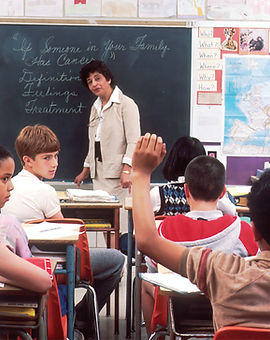
Discovering the Gems Within

Admission > FAQ
What do I look for to determine if a school is a good Montessori school?
Not all Montessori schools are alike. Some are Montessori in name only. Others have the teachers but lack a vision, some are businesses and some have the credentials, vision and prepared environment essential to qualify to be called a Montessori school.
There are a number of clues that will assist you in knowing which one is true to the Montessori standard such as the following:
-
Does the school have a world embracing vision that prepares the child to find their role in the advancement of civilization; can administration explain the central theme to Montessori education which is “Cosmic Education”;
-
Does the Director have any Montessori certification and experience in the specific field of Montessori;
-
Are the teachers certified with the appropriate training;
-
Is the staff inviting, helpful, able to explain their program;
-
Are teachers expected to continue their Montessori education regardless of how many years experience and or current credentials they have, this is in addition to the 15 hours required by state law;
-
Does the school have any professional affiliation to ensure quality of services;
-
Are parents welcomed to visit and volunteer;
-
Is there a parent education component;
-
Is the building constructed for the joy of children, windows low to be seen out, natural light throughout, bathrooms small to size, colors soothing, floors easy to clean;
-
Is the school safe by providing locked doors, monitored entries, child-size furniture, playgrounds that are free from possible harm;
-
Is the classroom environment uncluttered, clean, orderly, beautiful in a simply way, child centered;
-
Does the practical life area include washing of tables, cleaning equipment for the care of environment by the children, is there a task list in which all children share, and is there a feeling of life skills being lived and children expressing joy and confidence in what they are doing.
-
Does the curriculum value the fine arts, music, art, second language studies, dance etc...?
-
Is the school environment quiet when you walk in, do the children work independently in the classrooms, are the shelves orderly with Montessori materials on them, are their additional enrichment classes provided;
-
Is there an indoor area available for physical education classes or activity when the weather in inclement.
-
Do the children have access to outdoor learning such as gardening, an outdoor classroom, activities that take place outside such as a water or sand table, bug investigation, art inspired by the outdoor surroundings;
Will my child be able to transition from Montessori to the public/traditional school environment without any difficulty?
Without a doubt, your child will be more than prepared to transition to another environment that honors his/her acquired skills and attitudes. Children are extremely flexible and can adjust to clear expectations and challenging tasks. We find that if the parents are positive encouragers and listen to their child’s needs, both can make the transition smooth and rewarding. Usually the Montessori child is somewhat academically ahead of the traditional program but they have other areas to develop inherent in the traditional setting.
Doesn’t the multi-age factor in a Montessori classroom threaten the younger students?
In fact, it is just the opposite. The multi-age factor protects the rights of all age children in that there are leaders, the older children, who set the standard and protect the safety of all. The younger children look up to the older ones and will often seek their help both academically and emotionally if and when a situation arrives that they can’t handle themselves.
How do I know my child will not spend all their time doing coloring or arts and crafts?
Each teacher keeps track of all the choices a child makes. The teacher will introduce each subject area to every child and the material and work draws the child to repeat the work until mastery is accomplished. Children are drawn to learn and to constantly challenge themselves.
How is discipline handled in the classroom?
There are few discipline problems in a Montessori classroom because of the strong sense of order which balances structure and freedom. And because of the multi age factor which provides healthy role models. The students practice the language of virtues which give them the words to express their feelings appropriately.
If, however, something more firm is needed, the child will be asked to settle down by going to a prepared peaceful area within the classroom and resume work when they feel comfortable doing so.